Second Charge Mortgages
You could receive your loan in as little as 3 days!
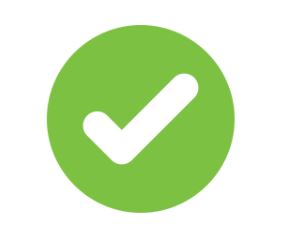
Borrow up to £250,000

Flexible terms from 3-30 years

We consider all credit histories

Employed, self employed, pension and benefit income

We're a direct lender, so there are no hidden broker fees

Representative Example: A secured loan of £34,000 payable over 7 years on a fixed rate of 10.19% for the first 5 years, followed by a variable rate, currently 11.95%, would require 60 monthly payments of £609.50 followed by 24 monthly payments of £620.27. The total amount repayable would be £51,456.48, this includes interest, an arrangement fee of £1,999 and a processing fee of £499. The overall cost for comparison is 13.3% APRC representative.
How it works
Organising your finances can sometimes feel stressful, but we want to make it as easy as possible for you.
In just 3 simple steps you could have the money in your bank account. All you need to do is:
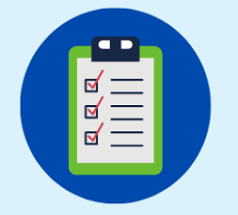
1: Enquire
Complete our quick and easy online enquiry form. Alternatively, you can speak to an advisor instantly by calling us or starting a live chat.

2: Your details
One of our qualified advisors will call you to discuss your enquiry and work out a monthly payment that meets your needs and circumstances.

3: We'll do the rest
We'll help you complete the paperwork and any other supporting documentation required.
What do our customers say?
You can relax knowing you’re working with a highly rated team. But don’t just take our word for it, visit our website and read our reviews – they speak for themselves.
What is a second charge mortgage?
A second charge mortgage is another name for a loan secured against your home. These loans are taken out in addition to your first mortgage, hence “second charge”.
A 2nd charge mortgage is a loan that is secured against the equity in your property. These are often referred to as secured loans or homeowner loans.
The amount you can borrow relies on the available equity that’s in your home. This is what’s left when you subtract what’s outstanding on your mortgage, away from the value of your home.
Your home acts as form of security for lenders if you are ever unable to keep up with the monthly repayments. This therefore means if you don’t own a property, you are unable to take out this type of loan.
With 2nd charge mortgages, you would essentially be borrowing a second line of money in addition to your current mortgage .Therefore, two loans would be secured against your property.
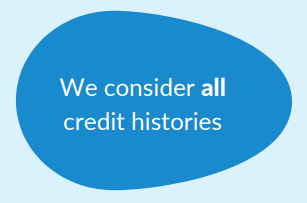
Second charge mortgages for bad credit
This type of loan may allow you to borrow money with a poor or bad credit history. But it’s important to remember that the interest rate may be higher if you have bad credit, and you should never borrow more money than you can afford to repay.
Whilst second charge mortgages are a good option for people with a good credit history, they can also be a solution for those people with poor or bad credit histories. If you have struggled with your credit in the past and have previously been declined by mortgage lenders it doesn’t mean that every lender will turn you down. Whilst some lenders may not be able to assist, due to the associated financial risk of a low credit score, we have helped many individuals with poor credit profile. We will do our very best to help you find a suitable loan that is affordable. For help with credit or debt issues, you can visit The Money Helper.
We consider all credit histories, including those that have:
- Accounts in default
- CCJ’s (county court judgement)
- Debt management plans
- Had IVA (individual voluntary arrangement) which is now cleared
- Cautions or restrictions against their property
- Missed payments (maximum of 2 within 12 months)
Why choose Central Trust?
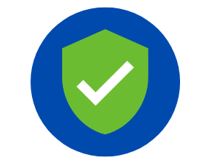
35 years' experience
We are one of the UK's longest established specialist lenders trading since 1988 giving us over 35 years' experience providing secured loans, homeowner loans and second mortgages.

Simple application process
You can call our team directly on 0800 980 6273 (Mon-Fri:8:00am-7:00pm) or you can enquire online at any time using our quick and easy online form.
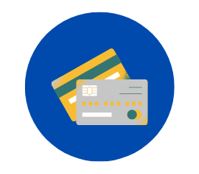
All credit considered
We understand that life happens and there's more to your story than your credit score or recent pay slip. So if you have a less than perfect credit score we could still help.
What are the benefits of a second charge mortgage?
Second charge mortgages can potentially allow you to borrow money at a lower interest rate, take out a larger loan or borrow money despite a poor credit score.
Firstly, like all loans, a borrower would be given immediate access to funds. Whereas if you were to begin gradually saving up, it would take you longer to raise the money.
Secondly, as second charge mortgage lenders use your property as security, you may be able to obtain a larger loan with lower interest rates in comparison to other types of borrowing. For example, with an unsecured loan where assets are not used as collateral, rates and monthly repayments tend to be higher.
Moreover, the criteria for second charge mortgages tends to be more flexible in comparison to other borrowing options, such as your credit history or your length of employment. This is because your property is used as security. With this being said, it does depend on your personal circumstances.
Lastly, with a second charge mortgage you may be able to access longer repayment periods. This means that you will be able to pay back the money over a longer period of time, which will decrease you monthly repayment costs. It is important to note that having a longer repayment period, will mean that you may end up paying more overall, as you will be paying the interest over the loan term.
Case studies

Home improvement loan
For an applicant with poor credit history.

Secured loan
For a self-employed client with limited trading history.

Debt consolidation
For an applicant with multiple lines of credit.
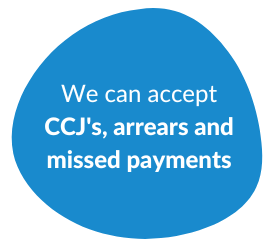
What are the differences between a first charge and second charge mortgage?
A second charge mortgage is another name for a loan secured against your home. These loans are taken out in addition to your first mortgage, hence “second charge”.
A second charge mortgage is a loan that is secured against the equity in your property. These are often referred to as secured loans or homeowner loans.
The amount you can borrow relies on the available equity that’s in your home. This is what’s left when you subtract what’s outstanding on your mortgage, away from the value of your home.
Your home acts as form of security for second charge lenders if you are ever unable to keep up with the monthly repayments. This therefore means if you don’t own a property, you are unable to take out this type of loan.
With a second charge mortgage you would essentially be borrowing a second line of money in addition to your current mortgage. Therefore, two loans would be secured against your property.
Second charge mortgage rates
Interest rates will vary depending on your situation. Factors include how much you want to borrow, the repayment period, the affordability of the loan and your credit history.
Second charge mortgage rates vary lender to lender and in most cases your personal circumstances such as your credit score and income will determine the rate and loan term
Second charge mortgage rates tend to be higher than the rate for your first mortgage, as the second mortgage lenders usually take more risk.
If you want to find out what rate you could get on a second charge mortgage, click enquire now to begin


Ready to enquire?
Talk to our qualified mortgage experts
![]()
Friendly UK based advisors

Enquiring won't affect your credit rating

Fast turnaround times 7-10 days is possible

No phone menus - immediate contact from our advisors

We are a direct lender, so we'll work with you from start to finish
FAQ's
Using your home as security could help you borrow more money, get a lower interest rate, or even overcome a poor or bad credit history.
Second charge mortgages are a useful source of borrowing for many people, as they can be used for a variety of different purposes.
They can be used to fund home improvement projects, whether these are essential property repairs or bigger projects with the aim to enhance a property or to increase the property value.
Some people take out second mortgages to help consolidate their debts. It could be that someone has multiple debts that they have accumulated over a longer period of time, and they intend to combine them into one loan with a lower repayment cost. In doing so, it can help people understand their debt better as it helps simplify their monthly payments.
Or they can simply be used to raise funds for other purposes that an individual does not have the savings to cover at the time.
Enquire for a second charge mortgage, it is a straightforward process, which can be completed online by following our application process or by calling one of our qualified advisors using the number at the top of this page.
Our advisors will be able to discuss your enquiry and establish whether or not we can help secure the funds you need.
Yes, if you are using it to consolidate debt or pay off other debt at a lower interest rate or with more affordable monthly repayments. Using the equity in your home to reduce your costs or overall debt can be a good idea, but only if you can afford the new repayments as your home will be at risk if you cannot.
All loans have risks if you do not repay them. Although second mortgages offer many benefits, they have the added risk of losing your home if you do not repay the loan.
No. A solicitor will not be required for a second charge mortgage application. However we would always recommend researching any loan thoroughly and making certain that it is comfortably affordable. Always budget responsibly, and ideally have a plan of action in case of financial difficulty.
Yes. Your mortgage lender is allowed to refuse a second charge loan or mortgage against your property if they feel it would make them lose money on the sale if they should ever need to repossess it. Generally, this would only happen if you were trying to borrow more money that what was available in equity.
You should always make sure you have enough equity in a property before applying for a second charge mortgage or loan. However if you are unsure, the new lender should be able to check for you. It’s worth noting that a lender could also refuse a second charge on other grounds such as affordability and credit history.
Second charge mortgages are regulated by the FCA, however if someone bought an investment property and does not live in it, then it falls into the “non-regulated” category. Second mortgages raised against these types of properties would fall into this category.